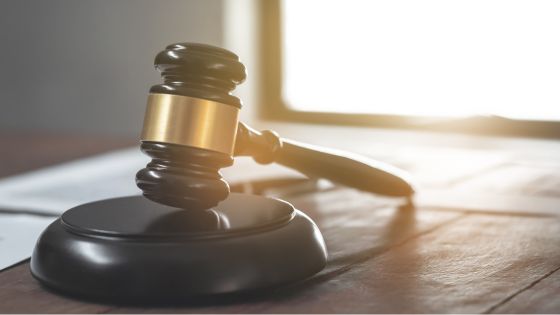Initiating a settlement for the Camp Lejeune lawsuits is an endeavour fraught with obstacles and complexities. Investigation and evidence gathering have begun as legal teams explore every detail of the contamination incident. Then, step by step, they make their way through complex legal proceedings to achieve justice for those affected by contamination incidents.


Litigation involving Camp Lejeune requires careful consideration and dedication by legal professionals at every step, from negotiations to court proceedings. At every turn, victims’ rights must be upheld while advocating for fair compensation – join us as we explore the Camp Lejeune lawsuits as they seek ways to secure justice and closure.
Camp Lejeune’s Enduring Impact: A Legacy of Contamination
Camp Lejeune’s legacy is marked by the enduring impact of its water contamination, which has left a profound imprint on the lives of thousands. According to NBC News, over 93,000 individuals have initiated claims under the Camp Lejeune Justice Act. They are seeking restitution for injuries stemming from exposure to toxic water between 1953 and 1987.
However, the majority of these claims remain outstanding, underscoring the challenges the Navy faces when processing such a large volume of cases.
To address the backlog and provide prompt relief, the Navy established the Alternative Options Program to expedite payments to eligible individuals. This new initiative seeks to reduce the protracted legal battle. Payments range from $150,000 to $450,000, and additional payments are also available if there are deaths related to the exposure.
Camp Lejeune is leaving an indelible mark as those affected go through the complex process of seeking justice and finding resolution within ongoing legal proceedings.
Commencing the Legal Journey
Legal action against Camp Lejeune requires extensive paperwork and complex protocols, requiring veterans to submit claims with evidence of their period of exposure and subsequent health concerns. Since 2012, when Congress enacted the Camp Lejeune Act providing recourse for exposure-related illnesses, legal complications related to Camp Lejeune litigation have grown rapidly.
Expert attorneys versed in veterans benefits law provide invaluable support, ensuring their claims are carefully prepared and exploring potential class-action lawsuits aimed at strengthening collective advocacy among affected veterans.
Traversing Federal Guidelines
Adherence to federal regulations relating to Camp Lejeune water contamination matters is extremely important and requires a thorough understanding. To be eligible for benefits related to the Camp Lejeune contamination, veterans seeking compensation from the Department of Veterans Affairs (VA) must meet specific eligibility standards outlined by them. There must be direct exposure to contamination to qualify for VA benefits related to Camp Lejeune.
VA guidelines define exposure as spending at least 30 cumulative days between 1953 and 1987 on one or more grounds.
CERCLA and other statutes form the legal basis for successful claims for veteran’s environmental risks, compensation, and liabilities. Compliance with CERCLA and related regulations serves as the foundation for building strong claims. Sometimes successful claims require collaboration with environmental scientists or health experts to strengthen the veterans’ evidence base.
Additionally, understanding the parameters of Camp Lejeune lawsuit payout per person is essential for claimants to assess potential compensation and plan accordingly. The payment amount depends on factors such as the severity of the illness, duration of risk and individual circumstances.
Getting clarity on these payment structures helps veterans navigate the legal process with accurate expectations. Working closely with legal experts experienced in Camp Lejeune cases can help veterans understand how payment scheduling works and how to maximize potential compensation payments.
The Significance of Legal Representation
According to Torhorman Law, legal representation in Camp Lejeune cases requires attorneys specializing in environmental law and veteran-specific regulations. Such legal professionals play an invaluable role in breaking down complex legal terms so that experienced people can fully understand their rights and navigate the intricacies of making a claim.
Legal advisors not only work as legal advocates but also act as guides to experienced people in complex legal environments. His experience extends far beyond court proceedings to assisting medical professionals in gathering evidence that can support veterans’ claims for compensation at Camp Lejeune. Through comprehensive support services like these lawyers, it is ensured that veterans’ voices are heard when they are seeking compensation.
Assessing Medical Conditions
Analyzing medical records is important to attribute health problems to Camp Lejeune exposure. The Agency for Toxic Substances and Disease Registry (ATSDR) identifies conditions associated with water pollution. Veterans receive thorough medical evaluations that point to specific indicators – cancer, congenital disabilities, and neurological disorders are obvious examples that point directly to risk.
Collaboration with healthcare professionals and experts helps improve the accuracy of these assessments, giving veterans an in-depth knowledge of Camp Lejeune’s exposures.
The Elective Option
Established in 2023, the Elective Option streamlines the compensation process for eligible veterans by offering predetermined payments based on length of exposure and qualifying injuries – significantly accelerating resolution timelines.
The Elective Option addresses concerns regarding the prolonged nature of conventional legal battles. Veterans diagnosed within a certain time frame have access to an organized and expedited way to seek financial compensation through the Department of Justice (DOJ)’s Alternative Options Settlement Minimums, which vary depending on the length of service and severity of the injury. With Tier 1 injuries ranging from $100k to $450k. Receiving a different amount than Tier 2 injuries.
Tier 1 injuries include serious health conditions such as bladder cancer, kidney cancer, leukaemia, liver cancer and non-Hodgkin lymphoma. In contrast, Tier 2 injuries include, for example, end-stage renal disease/end-stage renal disease, multiple myelomas, Parkinson’s disease, and systemic scleroderma/systemic sclerosis.
This improvement in settlements is in line with the initiative designed to provide speedy justice and compensation to those affected by Camp Lejeune’s polluted water.
Settlement Proposals and Consequences
Eligible veterans receive settlement offers determined by factors such as duration of exposure. Accepting such offers represents a significant decision – giving up their right to file private lawsuits – that could have potential impacts on veteran’s legal options in the future.
Legal representation can help experienced people make the best decisions when creating settlement agreements, balancing the potential termination with any future legal options that may present themselves. Additionally, government support services demonstrate their dedication to holistic care that extends beyond mere financial recovery.
Frequently Asked Questions
What Steps Are Involved in Initiating a Camp Lejeune Lawsuit?
Camp Lejeune lawsuits require two things: proof that you lived or served there between 1953 and 1987 (30+ days) and any disease associated with contamination (congenital disabilities or cancer). Consulting an attorney familiar with such claims is highly recommended.
How Long Does It Typically Take to Reach a Settlement in Camp Lejeune Lawsuits?
The settlements at Camp Lejeune varied considerably. Some, such as alternative options, may be resolved in months. In complex cases involving traditional litigation, it can take up to two years to settle.
What Factors Determine the Amount of Compensation Offered in Camp Lejeune Settlements?
Camp Lejeune payouts depend on two key elements: severity and length of exposure. Generally, more serious illnesses and longer periods of exposure often lead to higher compensation payments.
Acquiring settlements for Camp Lejeune veterans requires a complex process designed to address the long-term effects of water pollution, from legal considerations and meeting federal requirements to health assessments and more. This can be challenging at times.
Since 2023, when the alternative option was first introduced, veterans with eligible claims have had accelerated access to resolution of their cases, Yet accepting settlement offers requires careful consideration of potential future legal claims that may arise against you.

























